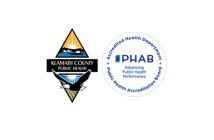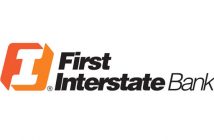It’s never easy in life to take sides, but when it comes to your accounting career, you’ll be forced to make a choice. Whether you recently graduated or you’re already established in a career but looking for a change, choosing between private and public accounting is an important step on your journey to an accounting career. Ask yourself the following questions to determine whether the public or private sector is best suited to your career goals and individual traits.
What Are Your Salary Expectations?
The outlook for job growth for both private and public accountants is strong, and salaries between the two are similar, but public accountants generally tend to make more than their private counterparts. However, in recent years, private accounting firms have made strides in benefits offerings, including stock options, pensions, and bonuses, thanks to competition within the market for qualified accounting candidates. In 2017, the salary for a private accountant is expected to start at $44,250. In contrast, public accountants can expect to make an entry level salary starting at $50,000 in the coming year. Actual salary ranges depend on location, firm-size, and education, but it’s clear to see that a career in accounting can be lucrative regardless of which sector you choose. Take a look at Monster.com to get salary rundowns for each role in your city.
How Much Time Are You Willing to Put In?
Take into consideration how much time an accountant in each sector generally puts in. Public accountants generally bill by the hour, which can easily see even entry-level positions putting in far more than 40 hours per work week. In contrast, private accountants work for single companies with standard hours, generally set at the 9 to 5 workday so commonly seen in other industries and roles.
What Kind of Work Environment Are You Looking For?
Do you hate traveling? Avoid public accounting. Public accountants often travel in order to work with a variety of different clients. You’ll need to be able to easily change work environments, be capable of working effectively in a remote setting, and possess good communication skills to handle various companies and clients.
If you’re looking for a more “traditional” office environment, in which you work from a particular office, you may be well suited for a career in the private sector.
What Are Your Long Term Goals?
The career path for public accountants follows a generally standard path. You’ll likely begin your career as a staff accountant, then progressively work up through the ranks. After becoming a senior accountant, most move into managerial roles—and some become partners—although this is more rare.
Private accountants also start as staff accountants, but may move to managerial roles in a quicker manner. In some cases, they move directly into the position of Chief Financial Officer (CFO). Those involved in private accounting firms also pursue various specializations, dependent on the industry they work in. If you’re looking for something industry-specific, private accounting could see you rising in the ranks more quickly, whereas public accountants fill the “jack of all trades” role.
What are Your Education Goals?
Both public and private accountants require a bachelor’s degree, with many candidates also pursing master’s degrees in accounting. However, there is a difference when it comes to CPA requirements. Many of those in public accounting become Certified Public Accountants; it’s required for public accountants to advance to managerial positions. In contrast, private accounting doesn’t require this certification for advancement. It’s important to understand this distinction. As anyone who has taken the CPA Exam can attest, it’s difficult and requires countless hours of studying, often facilitates the need for prep courses that provide training on how to pass the CPA exam (which most must take while working full-time), and may require more schooling in order to qualify just sit the exam. If you’re not interested in becoming a CPA, you may be better suited to private accounting, although you’ll encounter a significant portion of private accountants that hold this certification regardless of necessity.
There’s benefits and disadvantages to both the private and public sector in the accounting industry. Take the abovementioned aspects into consideration and determine which is best suited to your personality and career goals.





